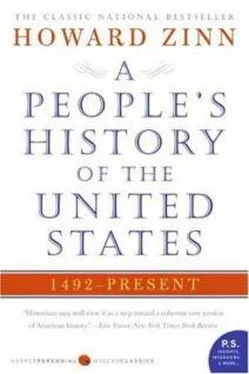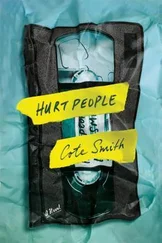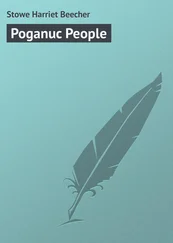Howard Zinn - A People
Здесь есть возможность читать онлайн «Howard Zinn - A People» весь текст электронной книги совершенно бесплатно (целиком полную версию без сокращений). В некоторых случаях можно слушать аудио, скачать через торрент в формате fb2 и присутствует краткое содержание. Издательство: Harper-Collins, Жанр: Фэнтези, на английском языке. Описание произведения, (предисловие) а так же отзывы посетителей доступны на портале библиотеки ЛибКат.
- Название:A People
- Автор:
- Издательство:Harper-Collins
- Жанр:
- Год:неизвестен
- ISBN:нет данных
- Рейтинг книги:4 / 5. Голосов: 1
-
Избранное:Добавить в избранное
- Отзывы:
-
Ваша оценка:
- 80
- 1
- 2
- 3
- 4
- 5
A People: краткое содержание, описание и аннотация
Предлагаем к чтению аннотацию, описание, краткое содержание или предисловие (зависит от того, что написал сам автор книги «A People»). Если вы не нашли необходимую информацию о книге — напишите в комментариях, мы постараемся отыскать её.
A People — читать онлайн бесплатно полную книгу (весь текст) целиком
Ниже представлен текст книги, разбитый по страницам. Система сохранения места последней прочитанной страницы, позволяет с удобством читать онлайн бесплатно книгу «A People», без необходимости каждый раз заново искать на чём Вы остановились. Поставьте закладку, и сможете в любой момент перейти на страницу, на которой закончили чтение.
Интервал:
Закладка:
The movement grew. The largest ecumenical body in the United States, the National Council of Churches, called on Christians to refrain from celebrating the Columbus quincentennial, saying, "What represented newness of freedom, hope and opportunity for some was the occasion for oppression, degradation and genocide for others."
The National Endowment for the Humanities funded a traveling exhibition called "First Encounter," which romanticized the Columbus conquest. When the exhibition opened at the Florida Museum of National History, Michelle Diamond, a freshman at the University of Florida, climbed aboard a replica of one of Columbus's ships with a sign reading "Exhibit Teaches Racism." She said: "It's a human issue-not just a Red [Indian] issue." She was arrested and charged with trespassing, but demonstrations continued for sixteen days against the exhibit.
A newspaper called Indigenous Thought began publication in early 1991 to create a link among all the counter-Columbus quincentenary activities. It carried articles by Native Americans about current struggles over land stolen by treaty.
In Corpus Christi, Texas, Indians and Chicanos joined to protest the city's celebrations of the quincentennial. A woman named Angelina Mendez spoke for the Chicanos: "The Chicano nation, in solidarity with our Indian brothers and sisters to the north, come together with them on this day to denounce the atrocity the U.S. government proposes in reenacting the arrival of the Spanish, more specifically the arrival of Cristobal Colon, to the shores of this land."
The Columbus controversy brought an extraordinary burst of educational and cultural activity. A professor at the University of California at San Diego, Deborah Small, put together an exhibit of over 200 paintings on wood panels called "1492." She juxtaposed words from Columbus's diary with blown-up fragments from sixteenth-century engravings to dramatize the horrors that accompanied Columbus's arrival in the hemisphere. A reviewer wrote that "it does remind us, in the most vivid way, of how the coming of Western-style civilization to the New World doesn't provide us with a sunny tale."
When President Bush attacked Iraq in 1991, claiming that he was acting to end the Iraqi occupation of Kuwait, a group of Native Americans in Oregon distributed a biting and ironic "open letter":
Dear President Bush. Please send your assistance in freeing our small nation from occupation. This foreign force occupied our lands to steal our rich resources. They used biological warfare and deceit, killing thousands of elders, children and women in the process. As they overwhelmed our land, they deposed our leaders and people of our own government, and in its place, they installed their own government systems that yet today control our daily lives in many ways. As in your own words, the occupation and overthrow of one small nation… is one too many. Sincerely, An American Indian.
The publication Rethinking Schools , which represented socially conscious schoolteachers all over the country, printed a 100-page book called Rethinking Columbus , featuring articles by Native Americans and others, a critical review of children's books on Columbus, a listing of resources for people wanting more information on Columbus, and more reading material on counter- quincentenary activities. In a few months, 200,000 copies of the book were sold.
A Portland, Oregon, teacher named Bill Bigelow, who helped put together Rethinking Schools , took a year off from his regular job to tour the country in 1992, giving workshops to other teachers, so that they could begin to tell those truths about the Columbus experience that were omitted from the traditional books and class curricula.
One of Bigelow's own students wrote to the publisher Allyn and Bacon with a critique of their history text The American Spirit :
I'll just pick one topic to keep it simple. How about Columbus. No, you didn't lie, but saying, "Though they had a keen interest in the peoples of the Caribbean, Columbus and his crews were never able to live peacefully among them," makes it seem as if Columbus did no wrong. The reason for not being able to live peacefully is that he and crew took slaves and killed thousands of Indians for not bringing enough gold.
Another student wrote: "It seemed to me as if the publishers had just printed up some 'glory story' that was supposed to make us feel more patriotic about our country.… They want us to look at our country as great and powerful and forever right…"
A student named Rebecca wrote: "Of course, the writers of the books probably think it's harmless enough-what does it matter who discovered America, really… But the thought that I have been lied to all my life about this, and who knows what else, really makes me angry."
A group was formed on the West Coast called Italian-Americans Against Christopher Columbus, saying: "When Italian-Americans identify with Native people… we are bringing ourselves, each of us, closer to possible change in the world."
In Los Angeles, a high school student named Blake Lindsey went before the city council to argue against celebrating the quincentennial. She spoke to the council about the genocide of the Arawaks, but she got no official response. However, when she told her story on a talk show, a woman phoned in who said she was from Haiti: "The girl is right. We have no Indians left. At our last uprising in Haiti people destroyed the statue of Columbus. Let's have statues for the aborigines."
There were counter-Columbus activities all over the country, unmentioned in the press or on television. In Minnesota alone, a listing of such activities for 1992 reported dozens of workshops, meetings, films, art shows. At Lincoln Center in New York City, on October 12, there was a performance of Leonard Lehrmann's New World: An Opera About What Columbus Did to the Indians . In Baltimore, there was a multimedia show about Columbus. In Boston and then in a national tour, the Underground Railway Theater performed The Christopher Columbus Follies to packed audiences.
The protests, the dozens of new books that were appearing about Indian history, the discussions taking place all over the country, were bringing about an extraordinary transformation in the educational world. For generations, exactly the same story had been told all American schoolchildren about Columbus, a romantic, admiring story. Now, thousands of teachers around the country were beginning to tell that story differently.
This aroused anger among defenders of the old history, who derided what they called a movement for "political correctness" and "multicultural-ism." They resented the critical treatment of Western expansion and imperialism, which they considered an attack on Western civilization. Ronald Reagan's Secretary of Education, William Bennett, had called Western civilization "our common culture… its highest ideas and aspirations."
A much-publicized book by a philosopher named Allan Bloom, The Closing of the American Mind , expressed horror at what the social movements of the sixties had done to change the educational atmosphere of American universities. To him Western civilization was the high point of human progress, and the United States its best representative: " America tells one story: the unbroken, ineluctable progress of freedom and equality. From its first settlers and its political foundings on, there has been no dispute that freedom and equality are the essence of justice for us."
In the seventies and eighties, disabled people organized and created a movement powerful enough to bring about the passage by Congress of the Americans with Disabilities Act. It was an unprecedented piece of legislation, setting standards which would enable persons with disabilities to contest discrimination against them, and ensuring they would have access to places where their disabilities would otherwise bar them.
Читать дальшеИнтервал:
Закладка:
Похожие книги на «A People»
Представляем Вашему вниманию похожие книги на «A People» списком для выбора. Мы отобрали схожую по названию и смыслу литературу в надежде предоставить читателям больше вариантов отыскать новые, интересные, ещё непрочитанные произведения.
Обсуждение, отзывы о книге «A People» и просто собственные мнения читателей. Оставьте ваши комментарии, напишите, что Вы думаете о произведении, его смысле или главных героях. Укажите что конкретно понравилось, а что нет, и почему Вы так считаете.












